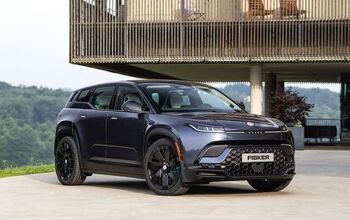Moving Forward: Audi Dissolving Dieselgate Task Force

Audi CEO Rupert Stadler has announced his company will dismantle the task force assigned to investigate how many of its diesel cars came equipped with defeat devices. The company established the team after Volkswagen Group admitted to selling 11 million diesel models, through its various brands, with illegal engine management software that hid peak NOx emissions during testing.
Even though Volkswagen has found itself smack-dab in the center of another costly controversy, Stadler claims that Audi is on the cusp of wrapping up its own diesel crisis. “We will have documented and processed all the engine/transmission combinations by the end of the first quarter 2018,” the CEO told journalists at Audi’s headquarters in Ingolstadt, Germany, this week.
According to Automotive News Europe, Audi has already handled of up to 850,000 of the contentious V-TDI engines sold across the globe. “We are at an estimated 80 percent,” Stadler said. “We are gradually emerging from the crisis mode and are moving back into regular operation.”
In the past, Stadler has been accused of having knowledge of VW’s diesel deception as early as 2010. Audi has also been faulted for developing defeat devices as early as 1999, several years before Volkswagen Group used the technology to falsify test results. However, the brand doesn’t appear to have deployed the technology on its own cars prior to the dieselgate scandal. Brownie points for exercising temporary restraint, we suppose.
With the diesel nonsense nearly settled, Audi can now focus on the widespread electrification of its fleet. By 2025, the automaker intends to have more than 20 electrified vehicles in its lineup, accounting for one-third of its total sales volume. Stadler says meeting emissions requirements is essential part of Audi’s future success, especially since it wants to expand its global footprint.
“Take this sample calculation,” he said. “Missing the fleet average target by 11 grams of CO2 per kilometer would cost us a billion euros a year in Europe. So non-fulfillment is not an option.”
[Image: Audi AG]

A staunch consumer advocate tracking industry trends and regulation. Before joining TTAC, Matt spent a decade working for marketing and research firms based in NYC. Clients included several of the world’s largest automakers, global tire brands, and aftermarket part suppliers. Dissatisfied with the corporate world and resentful of having to wear suits everyday, he pivoted to writing about cars. Since then, that man has become an ardent supporter of the right-to-repair movement, been interviewed on the auto industry by national radio broadcasts, driven more rental cars than anyone ever should, participated in amateur rallying events, and received the requisite minimum training as sanctioned by the SCCA. Handy with a wrench, Matt grew up surrounded by Detroit auto workers and managed to get a pizza delivery job before he was legally eligible. He later found himself driving box trucks through Manhattan, guaranteeing future sympathy for actual truckers. He continues to conduct research pertaining to the automotive sector as an independent contractor and has since moved back to his native Michigan, closer to where the cars are born. A contrarian, Matt claims to prefer understeer — stating that front and all-wheel drive vehicles cater best to his driving style.
More by Matt Posky
Latest Car Reviews
Read moreLatest Product Reviews
Read moreRecent Comments
- Namesakeone If I were the parent of a teenage daughter, I would want her in an H1 Hummer. It would be big enough to protect her in a crash, too big for her to afford the fuel (and thus keep her home), big enough to intimidate her in a parallel-parking situation (and thus keep her home), and the transmission tunnel would prevent backseat sex.If I were the parent of a teenage son, I would want him to have, for his first wheeled transportation...a ride-on lawnmower. For obvious reasons.
- ToolGuy If I were a teen under the tutelage of one of the B&B, I think it would make perfect sense to jump straight into one of those "forever cars"... see then I could drive it forever and not have to worry about ever replacing it. This plan seems flawless, doesn't it?
- Rover Sig A short cab pickup truck, F150 or C/K-1500 or Ram, preferably a 6 cyl. These have no room for more than one or two passengers (USAA stats show biggest factor in teenage accidents is a vehicle full of kids) and no back seat (common sense tells you what back seats are used for). In a full-size pickup truck, the inevitable teenage accident is more survivable. Second choice would be an old full-size car, but these have all but disappeared from the used car lots. The "cute small car" is a death trap.
- W Conrad Sure every technology has some environmental impact, but those stuck in fossil fuel land are just not seeing the future of EV's makes sense. Rather than making EV's even better, these automakers are sticking with what they know. It will mean their end.
- Add Lightness A simple to fix, strong, 3 pedal car that has been tenderized on every corner.


































Comments
Join the conversation
So Volkswagen-owned Audi, and Volkswagen-owned Porsche, are both in the clear and can continue to crank out high margin vehicles, while parent company Volkswagen, maker of lower margin vehicles, bears the brunt of the reputation hit and financial penalties, which it will recoup in a few years. I can see American regulators somehow being blamed in the future, with the German public buying the argument.